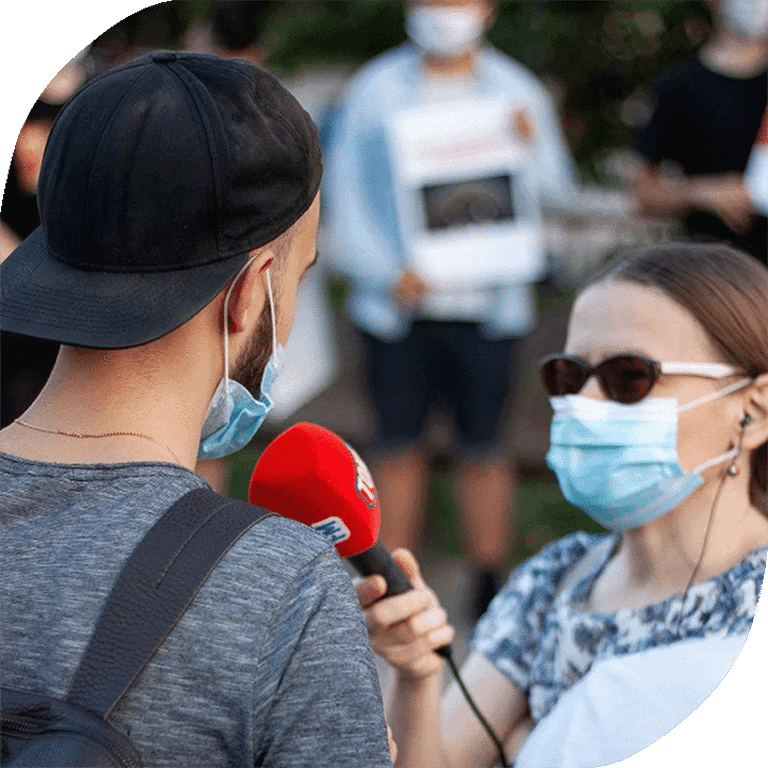The Commissioner’s inquiry aims to determine the details surrounding the restriction of media in the DTES during this time, given conflicting accounts to-date, and will seek to understand whether such a restriction is in accordance with human rights law and principles. It will also review other media exclusion zones created without a court injunction in B.C. in the last five years and determine the source of police authority to create such zones absent a court injunction.
Through the inquiry, the Commissioner will develop recommendations to protect human rights in these circumstances, including press freedom.
Why are we looking into this?
As Human Rights Commissioner Kasari Govender stated, “When police may potentially come into conflict with some of society’s most marginalized people during a police operation, allegations of media being excluded or restricted from reporting on those operations raise serious red flags and merit investigation.”
Information about potentially controversial events like these should be available to the public for full discussion and debate. Without trained media reporting information in a reliable way, there are heightened risks of misinformation spreading and harm to marginalized communities going unnoticed.
In the case of the April 2023 decampment, there were multiple reports of journalists encountering blockades at key intersections and being denied access to the area, despite the lack of a court injunction. However, the VPD asserted to the Vancouver Police Board there was no exclusion zone and that press were only asked to congregate at a muster point for safety reasons, and in response the Board dismissed the complaint about the alleged exclusion zone.
This case highlights a lack of transparency about what happened in April 2023 and raises questions about the source of police authority to restrict media access in B.C. and the effect that restriction or exclusion might have on human rights. The Commissioner’s inquiry will seek to answer some of those questions and determine what happened in April 2023. Shining a light on these issues will help the Commissioner determine where recommendations can be made to prevent human rights violations and maximize freedom of the press to safely gather needed information
When police may potentially come into conflict with some of society’s most marginalized people during a police operation, allegations of media being excluded or restricted from reporting on those operations raise serious red flags and merit investigation. The B.C. public rely on the media to gather and publish information, including on any potential human rights violations. The press plays a key role in our democracy and the protection of human rights.
— Commissioner Kasari Govender
The inquiry’s process
This inquiry will begin by ordering information from the VPD and the City of Vancouver. The Commissioner will then develop a discussion paper and hold a session to solicit input. In the end, a final report will be published, which will include recommendations to the City and the VPD to minimize negative impacts to human rights, including freedom of the press, when exclusion or restriction zones are used.
For more information, read our Dec. 12 news release.
About inquiries
The Commissioner can use an inquiry to help promote or protect human rights in B.C.
An inquiry is an opportunity to delve deeply into the human rights implications of a specific incident or issue. Inquiries can include gathering factual and expert evidence, hearing directly from those impacted and making recommendations to address the human rights issues raised. Findings can be reported publicly and to the Speaker of the Legislative Assembly.
An inquiry is not a court of law and cannot make legal findings regarding specific incidents.
Rules for inquiries are found in the Human Rights Code and in the Human Rights Commissioner’s Inquiry Regulation.
If you are a member of the public with questions about this inquiry, please email [email protected].
For media requests, including interviews with Commissioner Kasari Govender, please contact [email protected].
- Previous inquiry:From hate to hope
